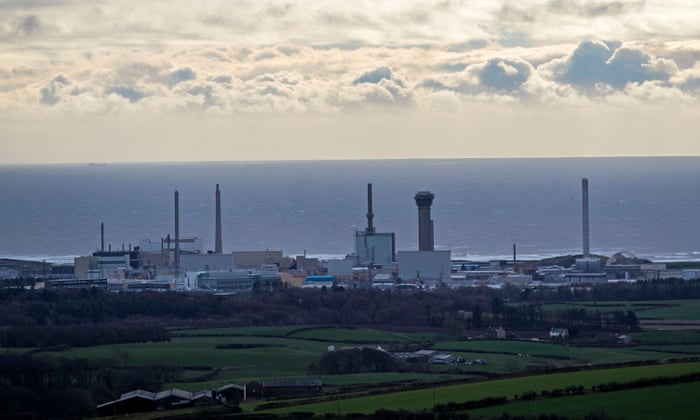A Brief Colonial History Of Ceylon(SriLanka)
Sri Lanka: One Island Two Nations
A Brief Colonial History Of Ceylon(SriLanka)
Sri Lanka: One Island Two Nations
(Full Story)
Search This Blog
Back to 500BC.
==========================
Thiranjala Weerasinghe sj.- One Island Two Nations
?????????????????????????????????????????????????Thursday, July 20, 2017
UK threatens to return radioactive waste to EU without nuclear deal
Brexit
department warns EU counterparts it will ‘return waste to its country
of origin’ if an agreement on nuclear cooperation cannot be reached
 The Sellafield plant in Cumbria has been reprocessing spent nuclear field from Europe since the 70s. Photograph: Peter Byrne/PA
The Sellafield plant in Cumbria has been reprocessing spent nuclear field from Europe since the 70s. Photograph: Peter Byrne/PA Britain
has warned the EU that it could return boatloads of radioactive waste
back to the continent if the Brexit talks fail to deliver an agreement
on nuclear regulation.
Britain
has warned the EU that it could return boatloads of radioactive waste
back to the continent if the Brexit talks fail to deliver an agreement
on nuclear regulation.
In what is being taken in Brussels as a thinly veiled threat, a paper
setting out the UK position for the negotiations stresses the right “to
return radioactive waste … to its country of origin” should negotiations
collapse.
The UK paper, detailing the British government’s hopes for future
cooperation once it leaves the Euratom treaty, at the same time as
leaving the EU, further stresses the “strong mutual interest in ensuring
close cooperation in the future”.
Britain currently has a 126-tonne stockpile of radioactive materials
originating from EU countries such as Germany, Italy and Sweden.
The state-owned Sellafield plant in Cumbria has been reprocessing spent nuclear field from across Europe since
the 1970s, producing reusable uranium, plutonium and radioactive waste.
Almost a fifth of the UK’s stockpile of civilian plutonium at
Sellafield originates from overseas.
Nuclear experts who have advised the British government told the
Financial Times that the Department for Exiting the European Union’s
none-too-coded warning over the future ownership of radioactive waste
might just encourage a more flexible approach from the Europeans over
the issue.
“It might just be a reminder that a boatload of plutonium could end up
at a harbour in Antwerp unless an arrangement is made,” one nuclear
expert told the FT.
Britain has signalled that while it is leaving the Euraotom treaty, of
which it has been a member since 1957, it wants to continue to cooperate
on nuclear regulation after the UK leaves the union in March 2019. The
treaty regulates the civilian use of atomic technology and critics of
the government’s position fear there is a threat of disruption to UK
supplies of nuclear reactor parts, fuel and medical isotopes vital for the treatment of cancer if a new agreement outside membership of the EU is not reached.
Around 500,000 scans are performed in the UK every year using imported
radioisotopes. In May the House of Commons energy select committee urged
the UK to postpone leaving Euratom. It claimed that power supplies could be threatened if a new regulator was not ready.
The EU insist, however, that such cooperation on nuclear regulation
would require the UK to recognise the jurisdiction of the European court
of justice, which is a red line for Theresa May.
EU diplomats told the FT that they had noted the veiled threat on
nuclear waste. One reportedly joked that they would have “the coastguard
ready”.
The UK Department for Business, Energy and
Industrial Strategy told the paper, however, that negotiations would
focus on the “legal ownership not physical location” of nuclear
materials. What happens to materials once ownership has been settled
“will be a matter for the owner and the UK to agree on commercial
terms,” the Whitehall department added.
